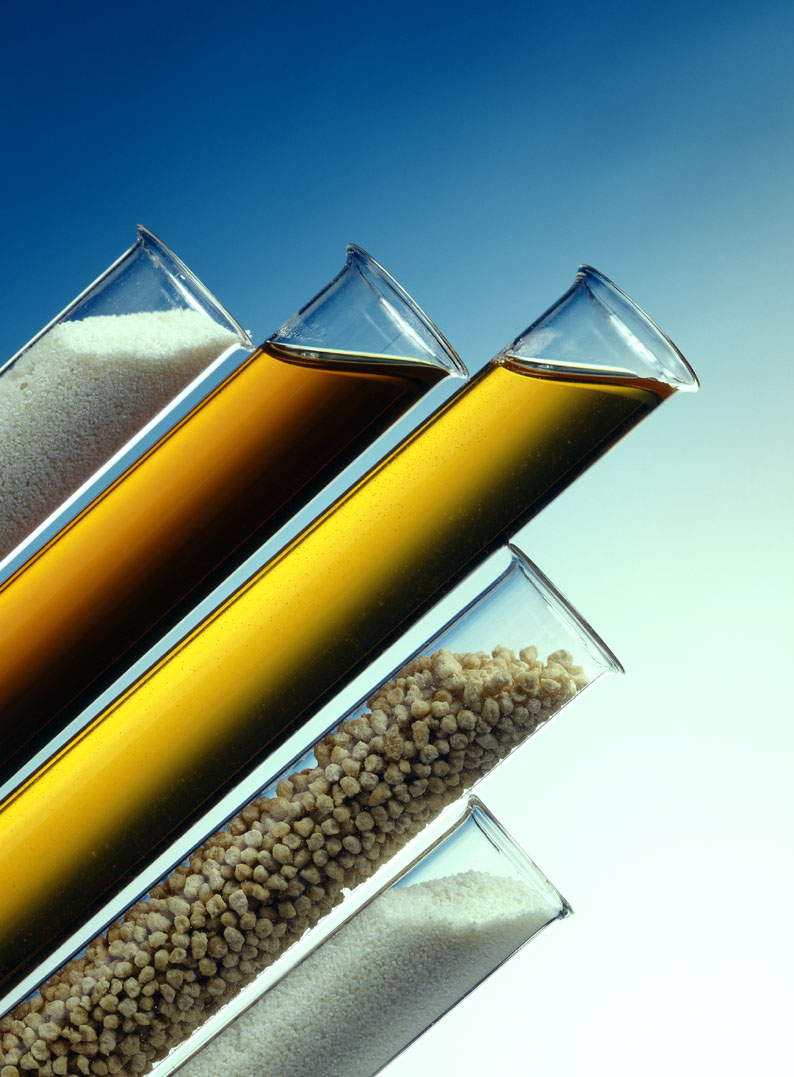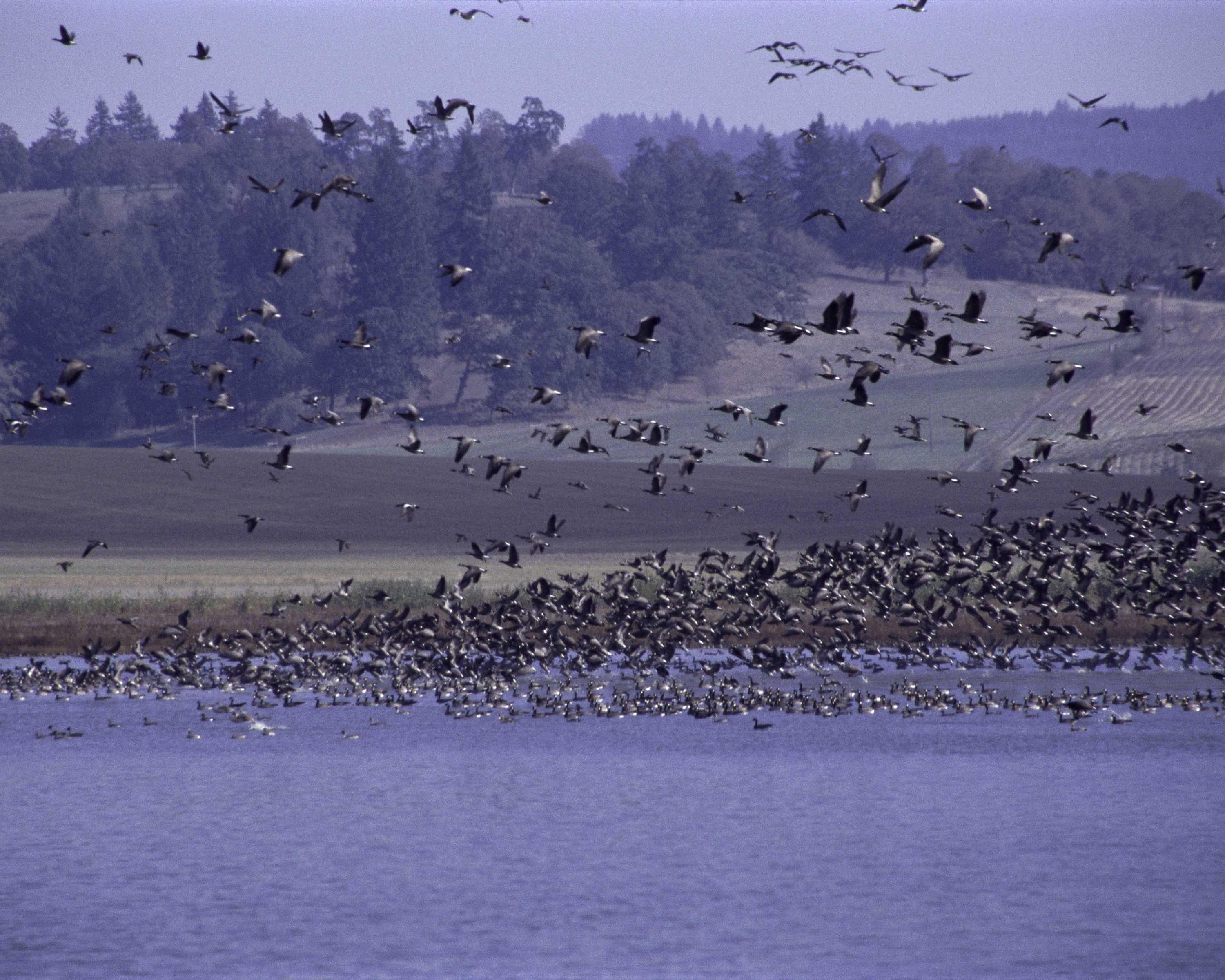|
Soil Association
The Soil Association is a British registered charity. The organisation activities include campaigning – against intensive farming, for local purchasing and public education on nutrition – and certification of organic foods. It was established in 1946. History Lady Eve Balfour, Friend Sykes and George Scott Williamson organized a founders' meeting for the Soil Association on 12 June 1945; about a hundred people attended. The association was formally registered on 3 May 1946, and in the next decade grew from a few hundred to over four thousand members. ebook The organization was formed following the publication of Balfour’s book ' The Living Soil'. Reprinted numerous times, it became a founding text of the emerging organic food and farming movement and of the Soil Association. The book is based on the initial findings of the first three years of the Haughley Experiment, the first formal, side-by-side farm trial to compare organic and chemical-based farming. The Haug ... [...More Info...] [...Related Items...] OR: [Wikipedia] [Google] [Baidu] |
Lady Eve Balfour
Lady Evelyn Barbara Balfour, (16 July 1898 – 16 January 1990) was a British farmer, educator, organic farming pioneer, and a founding figure in the organic movement. She was one of the first women to study agriculture at an English university, graduating from the institution now known as the University of Reading. Biography Balfour was one of the six children of Gerald, 2nd Earl of Balfour, and Lady Elizabeth Edith "Betty" Bulwer-Lytton, daughter of the 1st Earl of Lytton (former Viceroy of India). She was the niece of former prime minister Arthur J. Balfour. She decided at the age of 12 that she wanted to be a farmer. At the age of 17, she enrolled, as one of the first women students to do so, at Reading University College for the Diploma of Agriculture. After obtaining her Diploma in 1917, she completed a year's practical farming, living in 'digs' at 102 Basingstoke Road, Reading. During this time she worked at Manor Farm ploughing fields. She was subsequently appointed ... [...More Info...] [...Related Items...] OR: [Wikipedia] [Google] [Baidu] |
International Federation Of Organic Agriculture Movements
The International Federation of Organic Agriculture Movements (IFOAM - Organics International) is the worldwide umbrella organization for the organic agriculture movement, which represents close to 800 affiliates in 117 countries. It declares its mission is to, "Lead, unite and assist the organic movement in its full diversity". Vision of the organization is, "Worldwide adoption of ecologically, socially and economically sound systems, based on the Principles of Organic Agriculture". Among its wide range of activities, the federation maintains an organic farming standard, and an organic accreditation and certification service. History IFOAM - Organics International began in Versailles, France, on November 5, 1972, during an international congress on organic agriculture organized by the French farmer organization '' Nature et Progrès''. The late Roland Chevriot, President of , took the initiative. There were five founding members representing different organizations: Lady ... [...More Info...] [...Related Items...] OR: [Wikipedia] [Google] [Baidu] |
Rolf Gardiner
Henry Rolf Gardiner (5 November 1902 – 26 November 1971) was an English rural revivalist, helping to bring back folk dance styles including Morris dancing and sword dancing. He founded groups significant in the British history of organic farming. He was said to have sympathised with Nazism and participated in inter-war far right politics. He organised summer camps with music, dance and community aims across class and cultures. His forestry methods were far ahead of their time and he was a founder member of The Soil Association. Early life He was born in Fulham the son of Sir Alan Henderson Gardiner and his wife Hedwig, née Von Rosen. He was educated at West Downs school from 1913, Rugby School, and then at Bedales School. He was a student at St John's College, Cambridge, where he was a member of the Kibbo Kift youth group. Initially he was a youth leader, involved in exchanges with Germany. He was heavily influenced in the 1920s by D. H. Lawrence; he visited Lawrence in ... [...More Info...] [...Related Items...] OR: [Wikipedia] [Google] [Baidu] |
Nanomaterials
* Nanomaterials describe, in principle, materials of which a single unit is sized (in at least one dimension) between 1 and 100 nm (the usual definition of nanoscale). Nanomaterials research takes a materials science-based approach to nanotechnology, leveraging advances in materials metrology and synthesis which have been developed in support of microfabrication research. Materials with structure at the nanoscale often have unique optical, electronic, thermo-physical or mechanical properties. Nanomaterials are slowly becoming commercialized and beginning to emerge as commodities. Definition In ISO/TS 80004, ''nanomaterial'' is defined as the "material with any external dimension in the nanoscale or having internal structure or surface structure in the nanoscale", with ''nanoscale'' defined as the "length range approximately from 1 nm to 100 nm". This includes both ''nano-objects'', which are discrete pieces of material, and ''nanostructured materials'', which have inte ... [...More Info...] [...Related Items...] OR: [Wikipedia] [Google] [Baidu] |
Food Additive
Food additives are substances added to food to preserve flavor or enhance taste, appearance, or other sensory qualities. Some additives have been used for centuries as part of an effort to preserve food, for example vinegar (pickling), salt (salting), smoke (smoking), sugar (crystallization), etc. This allows for longer-lasting foods such as bacon, sweets or wines. With the advent of processed foods in the second half of the twentieth century, many additives have been introduced, of both natural and artificial origin. Food additives also include substances that may be introduced to food indirectly (called "indirect additives") in the manufacturing process, through packaging, or during storage or transport. Numbering To regulate these additives and inform consumers, each additive is assigned a unique number called an "E number", which is used in Europe for all approved additives. This numbering scheme has now been adopted and extended by the '' Codex Alimentarius'' Commission to ... [...More Info...] [...Related Items...] OR: [Wikipedia] [Google] [Baidu] |
Wildlife Conservation
Wildlife conservation refers to the practice of protecting wild species and their habitats in order to maintain healthy wildlife species or populations and to restore, protect or enhance natural ecosystems. Major threats to wildlife include habitat destruction, degradation, fragmentation, overexploitation, poaching, pollution and climate change. The IUCN estimates that 27,000 species of the ones assessed are at risk for extinction. Expanding to all existing species, a 2019 UN report on biodiversity put this estimate even higher at a million species. It is also being acknowledged that an increasing number of ecosystems on Earth containing endangered species are disappearing. To address these issues, there have been both national and international governmental efforts to preserve Earth's wildlife. Prominent conservation agreements include the 1973 Convention on International Trade in Endangered Species of Wild Fauna and Flora (CITES) and the 1992 Convention on Biological Diversity (C ... [...More Info...] [...Related Items...] OR: [Wikipedia] [Google] [Baidu] |
Packaging
Packaging is the science, art and technology of enclosing or protecting products for distribution, storage, sale, and use. Packaging also refers to the process of designing, evaluating, and producing packages. Packaging can be described as a coordinated system of preparing goods for transport, warehousing, logistics, sale, and end use. Packaging contains, protects, preserves, transports, informs, and sells. In many countries it is fully integrated into government, business, institutional, industrial, and personal use. Package labeling (American English) or labelling (British English) is any written, electronic, or graphic communication on the package or on a separate but associated label. History of packaging Ancient era The first packages used the natural materials available at the time: baskets of reeds, wineskins (bota bags), wooden boxes, pottery vases, ceramic amphorae, wooden barrels, woven bags, etc. Processed materials were used to form packages as they were develope ... [...More Info...] [...Related Items...] OR: [Wikipedia] [Google] [Baidu] |
Department For Environment, Food And Rural Affairs
The Department for Environment, Food and Rural Affairs (Defra) is a department of His Majesty's Government responsible for environmental protection, food production and standards, agriculture, fisheries and rural communities in the United Kingdom. Concordats set out agreed frameworks for co operation, between it and the Scottish Government, Welsh Government and Northern Ireland Executive, which have devolved responsibilities for these matters in their respective nations. Defra also leads for the United Kingdom on agricultural, fisheries and environmental matters in international negotiations on sustainable development and climate change, although a new Department of Energy and Climate Change was created on 3 October 2008 to take over the last responsibility; later transferred to the Department for Business, Energy and Industrial Strategy following Theresa May's appointment as Prime Minister in July 2016. Creation The department was formed in June 2001, under the leadersh ... [...More Info...] [...Related Items...] OR: [Wikipedia] [Google] [Baidu] |
Fishery
Fishery can mean either the enterprise of raising or harvesting fish and other aquatic life; or more commonly, the site where such enterprise takes place ( a.k.a. fishing ground). Commercial fisheries include wild fisheries and fish farms, both in freshwater waterbodies (about 10% of all catch) and the oceans (about 90%). About 500 million people worldwide are economically dependent on fisheries. 171 million tonnes of fish were produced in 2016, but overfishing is an increasing problem — causing declines in some populations. Because of their economic and social importance, fisheries are governed by complex fisheries management practices and legal regimes that vary widely across countries. Historically, fisheries were treated with a " first-come, first-served " approach, but recent threats by human overfishing and environmental issues have required increased regulation of fisheries to prevent conflict and increase profitable economic activity on the fishery. Modern jurisdictio ... [...More Info...] [...Related Items...] OR: [Wikipedia] [Google] [Baidu] |
The Prince Of Wales
Prince of Wales ( cy, Tywysog Cymru, ; la, Princeps Cambriae/Walliae) is a title traditionally given to the heir apparent to the English and later British throne. Prior to the conquest by Edward I in the 13th century, it was used by the rulers of independent Wales. The first native Welsh prince was Gruffudd ap Cynan of Gwynedd, in 1137, although his son Owain Gwynedd (Owain ap Gruffudd) is often cited as having established the title. Llywelyn the Great is typically regarded as the strongest leader, holding power over the vast majority of Wales for 45 years. One of the last independent princes was Llywelyn ap Gruffydd (Llywelyn the Last), who was killed at the Battle of Orewin Bridge in 1282. His brother, Dafydd ap Gruffydd, was executed the following year. After these two deaths, Edward I of England invested his son Edward of Caernarfon as the first English prince of Wales in 1301. The title was later claimed by the heir of Gwynedd, Owain Glyndŵr (Owain ap Gruffydd), from 1400 ... [...More Info...] [...Related Items...] OR: [Wikipedia] [Google] [Baidu] |
Jonathan Dimbleby
Jonathan Dimbleby (born 31 July 1944) is a British presenter of current affairs and political radio and television programmes, author and historian. He is the son of Richard Dimbleby and younger brother of television presenter David Dimbleby. Education Dimbleby was educated at Charterhouse, a boys' independent school in Surrey. Later, he studied farm management at the Royal Agricultural College and graduated in 1965. He then studied philosophy at University College, London, where he was editor of the student newspaper '' Pi'', and graduated in 1970. He was later elected an honorary fellow but resigned in 2015 in protest at the forced resignation of Tim Hunt as an honorary fellow. In July 2007 he received an honorary degree from the University of Exeter. He is an Honorary Fellow of Bath Spa University (2006) and holds an Honorary Doctorate from the University of the West of England (2018). TV and radio career Dimbleby began his career at the BBC in Bristol in 1969. In 1970 he ... [...More Info...] [...Related Items...] OR: [Wikipedia] [Google] [Baidu] |
Monty Don
Montagu Denis Wyatt Don (born George Montagu Don; 8 July 1955) is a British horticulturist, broadcaster, and writer who is best known as the lead presenter of the BBC gardening television series ''Gardeners' World''. Born in Germany and raised in England, Don studied at Magdalene College, Cambridge, where he met his future wife. They ran a successful costume jewellery business through the 1980s until the stock market crash of 1987 resulted in almost complete bankruptcy. In 1989, Don made his television debut as a regular on '' This Morning'' with a gardening segment, which led to further television work across the decade including his own shows for BBC Television and Channel 4. Don began his writing career at this time and published his first of over 25 books, in 1990. Between 1994 and 2006, Don wrote a weekly gardening column in ''The Observer''. In 2003, Don replaced Alan Titchmarsh as the lead presenter of ''Gardeners' World'', only leaving the show between 2008 and 201 ... [...More Info...] [...Related Items...] OR: [Wikipedia] [Google] [Baidu] |







